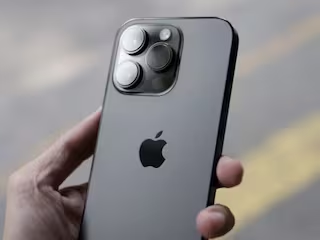Samsung Tipped To Make Advanced Cameras For iPhone 18 Pro Model: Know More

Samsung and Apple, the largest smartphone manufacturer duo, have long been known for their rivalry, particularly in design, features, and user experience. However, a recent report suggests the two tech giants are now collaborating. Samsung is reportedly developing an advanced three-layer stacked sensor for the next generation of Apple iPhones.
As reported by 9To5Mac, Sony held the exclusive contract for manufacturing iPhone camera sensors for more than ten years. However, Apple analyst Ming-Chi Kuo revealed last year that this arrangement is set to change with the iPhone 18, expected to launch in 2026.
As per the report, quoting a tipster, this new sensor, which reportedly has a PD-TR-Logic configuration, is expected to outperform Sony's Exmor RS image sensors, which have been used in iPhone cameras for several years.
Notably, the iPhone 18 series could be the company’s first smartphone lineup to incorporate Samsung sensors. As per 9To5Mac, a stacked sensor has the processing electronics placed directly to the back of the sensor, whereas a three-layer version has additional circuitry linked to the sensor, resulting in faster signal processing speeds. This would make the camera more responsive.
These stacked sensors from Samsung could help to reduce some sources of noise and boost the image quality.
The iPhone 18 is expected to be 1/2.6 inches in size and might come equipped with a 48-MP sensor which would result in significant improvements in image quality, especially in low-light circumstances. Additionally, it might include the next-generation A20 chipset from Apple, which will be made utilising TSMC 2-nanometer process. The upcoming devices may be powered by this chipset, which will provide improved performance.
Another report suggests that Samsung is also working on a 500MP camera sensor for its upcoming Galaxy devices. The technology is said to arrive with the upcoming Galaxy S25 Ultra models, further strengthening the company’s position in the smartphone market. Moreover, the sensor is expected to be coupled with powerful image processing technology, establishing a new standard for mobile photography and providing users with unprecedented levels of detail and clarity in their photographs.
